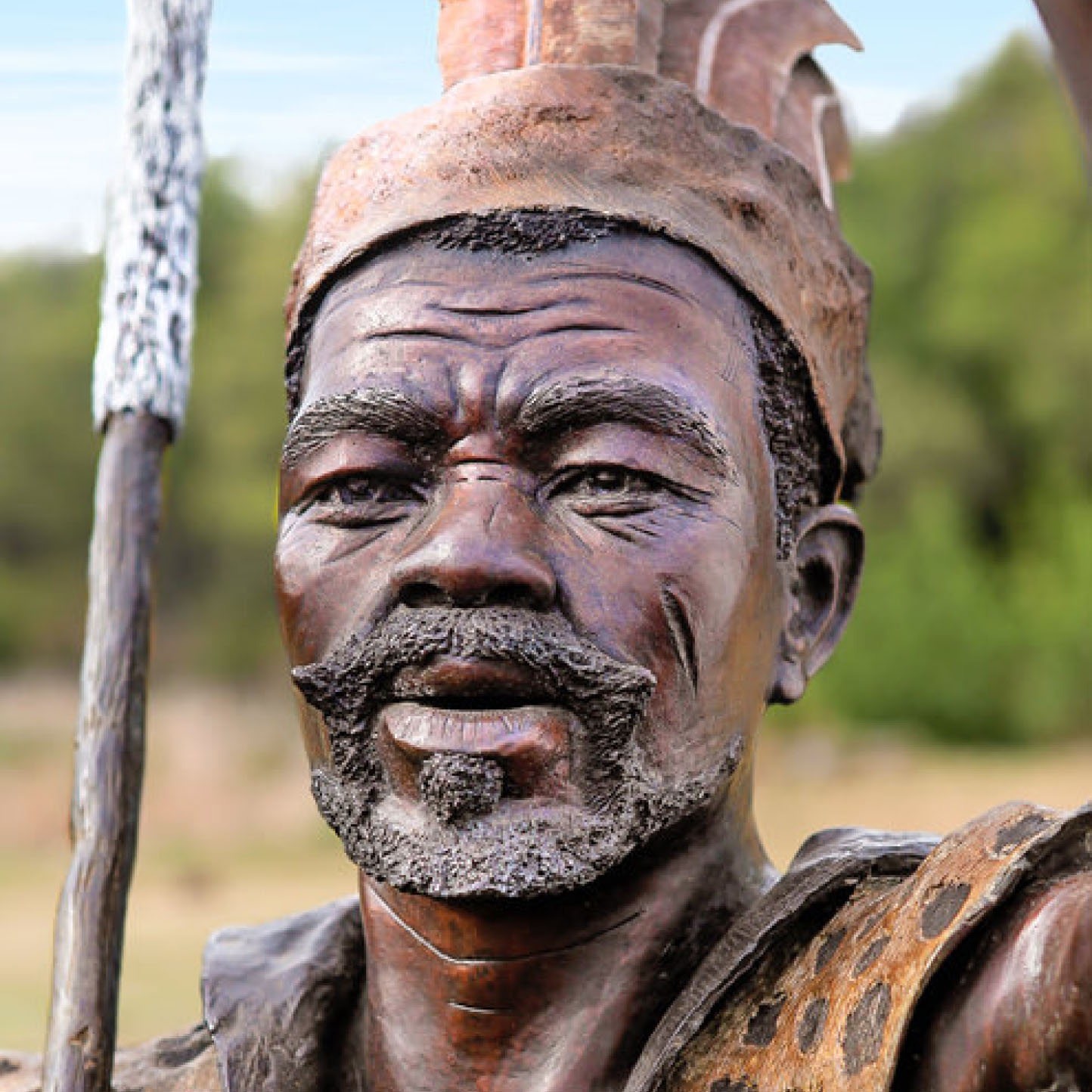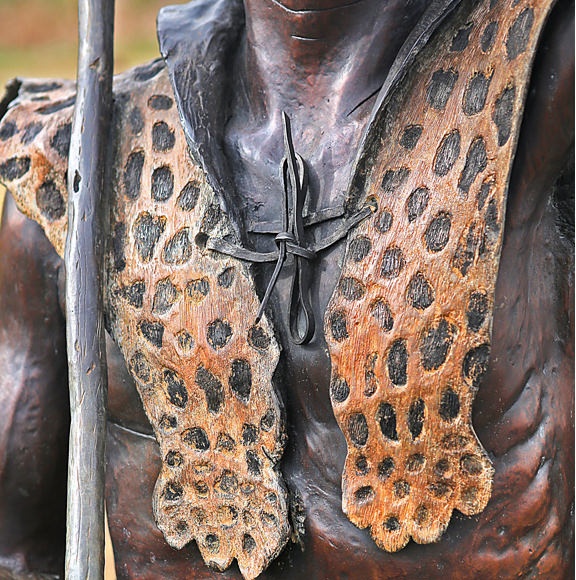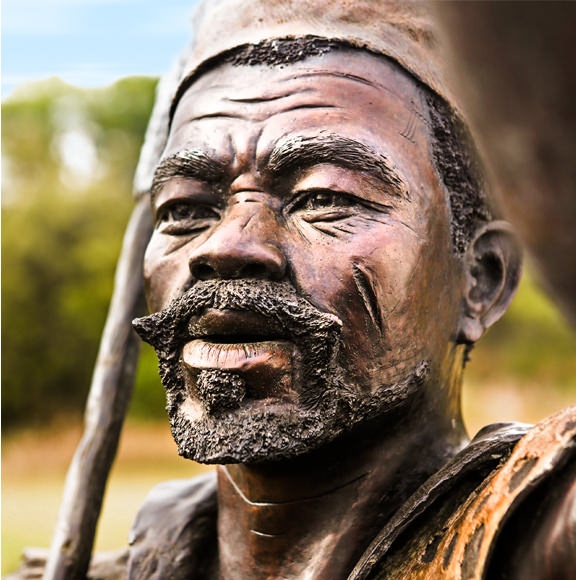


"Later visitors describe the Mpondo King Faku, who was to rule for more than 60 years, as a tall good-looking man, who was courageous, strong and forthright."
Hazel Crampton, ‘The Sunburnt Queen’
King Faku
1780 – 1867
King of amaMpondo
Faku succeeded his father Ngqungqushe as king in about 1815. A popular king, he was able to consolidate a number of loosely bound clans into a strong kingdom with an effective military and agriculture-based economy founded on cattle breeding and good grain and maize harvests.
His skilled use of armed action, diplomacy, alliances and careful cooperation with missionaries, and the European powers they represented, held the kingdom together and ensured it thrived. This was a difficult challenge at a time when the entire eastern region of South Africa, from the disputed borders of the Cape Colony to the small British colony at Port Natal (Durban), was in turmoil.
The revolutionary climate created by Shaka kaSenzangakhona to the north also posed a threat, but amaMpondo did not become victims of the expanding Zulu kingdom. Faku and his sons Mqikela and Ndamase defended Mpondoland during the iMfecane wars in the first half of the 1800s and under King Faku amaMpondo were never conquered.
Under the able and astute leadership of King Faku, amaMpondo kingdom, south of Kwazulu-Natal and now in the Eastern Cape, became one of the last African kingdoms in South Africa to fall under colonial rule in 1894.
Throughout his reign King Faku was able to steer a path for amaMpondo that helped his people maintain their independence. The kingdom he created was one of the largest of the Xhosa states. It was shared between his sons after his death in 1867.

